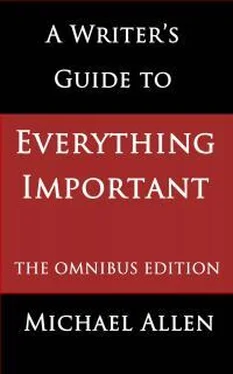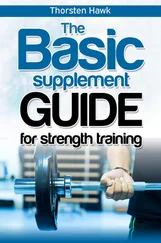‘You shouldn’t rub it.’
‘Shouldn’t I?’
‘No. Definitely not. There’s quite a lot of things a lad your age shouldn’t rub, and a lamp’s one of them. And if, by any chance, you do inadvertently pass your arm over it, by mistake like, and a genie does happen to pop out of the lamp, you should be very, very careful what you say.’
‘Should I?’
‘Oh yes. And if this genie should offer you three wishes, and say that you can have whatever your heart desires, do you know what you should do then?’
‘No, Albert.’
‘You should say no, lad. That’s all. Just... say... no.’
He sank the second half of his pint and stood up. ‘What have I told you?’ he said.
‘Er, you’ve told me that if a genie ever offers to grant me three wishes, I should be very, very careful,’ I replied.
King Albert patted me on the shoulder. ‘That’s right, lad,’ he said. ‘Whenever you’re faced with temptation, just say no, and then you’ll come to no harm.’
And with that he rushed off to catch his bus.
***
Reminder: How Young Albert Escaped from the 500 Harem Girls is told from a minor-character viewpoint, in the first person. In fact, two first-person narrators are involved, both of them minor characters. And you don’t have to read very far to see that the first character you meet is not terribly bright.
This story has also been published as a stand-alone ebook.
Afterword
The author of this book, Michael Allen, has written several other books (with more planned) that are designed to provide straightforward, practical advice for writers at all stages of their careers.
If you are now ready to read more about how to apply what you have learnt about viewpoint to the down-to-earth business of actual writing, try the following:
How to Write a Short Story that Works
How to Write a Novel that Works
In addition, much useful background on the worlds of book publishing, theatre, and screenwriting can be found in Michael Allen’s The Truth about Writing.
To get a good overview of the kinds of fiction and non-fiction books that Michael Allen has available, visit his author page on either the American branch or the co.uk branch of Amazon.
Finally, please consider writing a brief review of this book on your local branch of Amazon.
A WRITER’S GUIDE TO STYLE:
How to Make Your Fiction Memorable
Michael Allen
Copyright 2013 by Michael Allen
***
PART 1: Introduction to the subject
1. Aims
The aims of this book are:
(i) To enable a writer to identify the strengths and weaknesses of her present writing style;
(ii) To suggest ways in which a writer’s style might be improved;
(iii) To show how style can be used to reveal character and thus heighten emotion.
A Writer’s Guide to Style is the third in my series of practical, down-to-earth guides for writers; the two previous ones deal with emotion and viewpoint. This one will be most relevant to those who write fiction, whether short stories or novels, but non-fiction writers will also find it useful.
2. About the author
If you are presented with a book that calls itself a writer’s guide to something or other, you may reasonably wonder just who is the author of said book, and what makes him any sort of authority. All I can do to answer that is tell you a little of my personal history.
At the time of writing I am 74 years old. I was first paid for writing for a weekly magazine in 1955. My first novel was published in 1963, exactly 50 years ago this year, since when I have written at least 25 others (under my own name and several pen names).
I have written about ten non-fiction books, most of them intended to be of help to writers; and, in related fields, I have written various drama scripts that have been professionally produced on the stage, radio, and television.
For about 25 years I was a director of two small publishing companies, and hence saw something of the book world from a publisher’s perspective as well as an author’s.
As of today I have about 60 separate publications available in Kindle format, under various names. See the Afterword to this book for links to my author pages in Amazon sites.
I am an Englishman, and most of my experience has been in UK publishing; many of the examples that I give will therefore be from an English context (though the rest of the world doesn’t behave any differently). All spelling follows English conventions: colour instead of color, for example.
My principal career was in education; as a result, my instinct is always to pass on useful information. That’s why I’ve taken the trouble to write this book.
3. What do we mean by style?
When we speak of a writer’s style, we are using a shorthand term to describe her overall way of using words.
Does she use short sentences, or long ones? Lots of semi-colons or none? (A schoolmaster of mine, sixty years ago, used to maintain that to judge a writer’s quality of thinking you should count his semi-colons. He was talking about historians mainly.)
Is a writer’s work easy to read, or do you have to keep going back and trying to figure out what she meant? (If so, you won’t be reading her for long.) Is she amusing? Or totally po-faced – as we say in England – meaning humourless.
Quite frankly, if you start reading what the Eng. Lit. professors have to say about style, you will get hopelessly confused, as per usual when you try to read those fellows. So avoid that dreadful fate.
Just be aware that a writer’s style is a product of her nature and nurture. The way in which a writer uses words will depend upon how she was brought up, how she was educated, and what she has read. All of these factors combine to give every writer, at every point in her career, a particular ‘look’, or feel, or sound. If you read the prose aloud you will perhaps find it easier to recognise style than just going by the printed page.
One way and another, therefore, it seems that our old friend the Comte de Buffon, an eighteenth-century literary critic, just about put his thumb on it when he told us that ‘le style c’est l’homme meme.’ Translation: ‘Style is the man himself’; or woman, as the case may be.
In other words, what the Comte du Buffon meant is that style it is a reflection of your personality and experience. It will become easily recognisable after a reasonable degree of acquaintance – just like your face. And, in common with the way you dress and the way you walk and talk, your writing style is almost always going to tell the reader what sort of person you are.
Style is like your height: it’s not easy to change. If you’re five foot one, as an adult, you are never likely to be six feet tall. But you can make the best of yourself. In terms of appearance, you can buy glasses which match the shape of your face; and you can get your hair cut ditto. And that’s what this ebook is basically about. It’s about making the best of whatever literary gifts the gods may have given you.
4. The three key factors in a work of fiction
In the early twentieth century, Thomas H. Uzzell suggested that, from a writer’s point of view, there are three key factors in writing a short story, a novel, or something in between.
The first element is content. You have to have something to write about – some fragment of an idea. I’m going to write a story about a deaf man, you say to yourself; or a cow with a sick calf; or an alien invasion.
Next comes the question of technique. How are you going to handle this material? Are you just going to sit down and write whatever comes into your head? Or are you going to plan your story carefully, inventing events that test your character’s courage and demonstrate what a hero (or coward) he is?
Читать дальше












